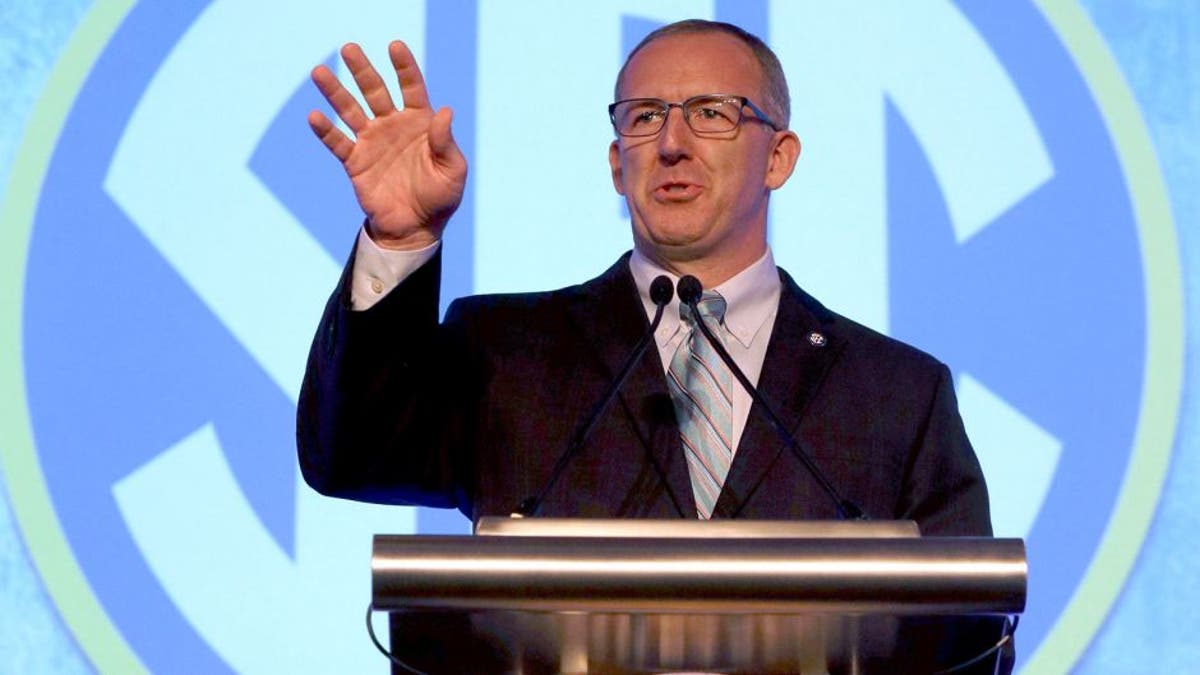
SEC Commissioner Greg Sankey speaks during the Southeastern Conference NCAA college football media days, Monday, July 13, 2015, in Hoover, Ala. (AP Photo/Butch Dill)
The Southeastern Conference has tweaked a rule banning member institutions from accepting players who had engaged in "serious misconduct" at a previous school. The league announced the amendment Friday at the SEC's spring meetings in Destin, Fla.
Last year, the league instituted the ban, which prohibited member schools from accepting transfer students who had been "subject to official university or athletics department disciplinary action" at a previous collegiate institution due to serious misconduct. At the time, "serious misconduct" was defined as "sexual assault, domestic violence or other forms of sexual violence."
In the amendment, the SEC expanded the definition of serious misconduct to include athletes who have been "convicted or pled guilty or no contest to a felony involving serious misconduct." The definition of serious misconduct was also expanded to include "dating violence or stalking" and "conduct of a nature that creates serious concerns about the safety of others."
Further, the amendment clarified that schools "shall conduct an appropriate inquiry into a transfer student-athlete's background that at least satisfies the Conference's minimum due diligence expectations" before awarding financial aid to a transfer or allowing that player to practice or play with the team.
However, the rule was not expanded to cover incoming freshmen who had not previously played at another school.
On Thursday, SEC member Mississippi State made news when it announced it would allow incoming freshman Jeffery Simmons to enroll and play football at the school. Simmons was arrested in March on assault charges after a video was released showing the 6-foot-4, 260-pound defensive end striking a woman during a fight.
Simmons, a five-star recruit, was admitted to the school with conditions, including a one-game suspension that will keep him out of the Bulldogs' season-opener against South Alabama. When asked about Simmons on Friday, SEC commissioner Greg Sankey told reporters the choice was the school's to make, but said he "would not express comfort" with Mississippi State's decision.








































